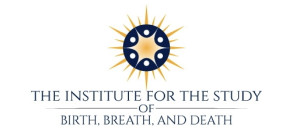Sacred Texts
Beginning January 2024, Institute founder/director Amy Wright Glenn
will facilitate a 5-month study of Sacred Texts.
We will draw from Hinduism, Buddhism, Judaism, Christianity, and Islam. Our aim is to carefully read and consider a foundational text for each of these five wisdom traditions with the intention of deepening our understanding of the central tenets, debates/discussions, and practices/rituals affirmed in each tradition. This course is taught through the lens of religious pluralism as defined by the Pluralism Project at Harvard University.
***
Sacred Texts
One Sunday a month
January-May 2024
(see schedule below)
All are welcome!
We warmly welcome you to make a free will donation (of any amount)
to Amy’s home church: the Unitarian Universalist Church of Asheville (UUCA), NC.
UUCA ministries are funded by member and non-member generosity.
Unitarian Universalist Congregations are self-funded.
Suggested donation for this course is $50.
To register, contact Amy.
***
We gather one Sunday each month ~ from 2-3:30pm EST ~ for a 90 minute lecture/discussion. For each monthly gathering, participants will consider the following:
*the historical context of the passage
*secular and theological views regarding the authorship of the passage
*the intended audience
*modern debate/discussion on application today
*personal response
 Sunday, January 21, 2024 ~ Hinduism
Sunday, January 21, 2024 ~ Hinduism
The Bhagavad Gita, Chapter 2-3
(Ecknath Easwaran’s translation)
Sunday, February 18, 2024 ~ Buddhism
The Dhammapada, Verses 1-40
(Gil Fronsdal’s translation)
Sunday, March 3, 2024 ~ Judaism
Deuteronomy Chapter 5-6
(New Jewish Publication Society Version)
Sunday, April 7, 2024 ~ Christianity
Luke Chapter 9-10
(New Standard Revised Version)
Sunday, May 5, 2024 ~ Islam
Qur’an Surah 2
(Thomas Cleary Translation)
All participants will receive PDF files and/or links to excerpts from Sacred Texts listed above a week prior to our gathering. Participants are welcome to purchase copies of the full scripture as inspired. Classes will be recorded and made available to participants. One need not attend all (or any) sessions live to benefit from the study.
“I hold that it is the duty of every cultured man or woman to read
sympathetically the scriptures of the world. If we are to respect others’
religions as we would have them to respect our own, a friendly study of the
world’s religions is a sacred duty.”
―

